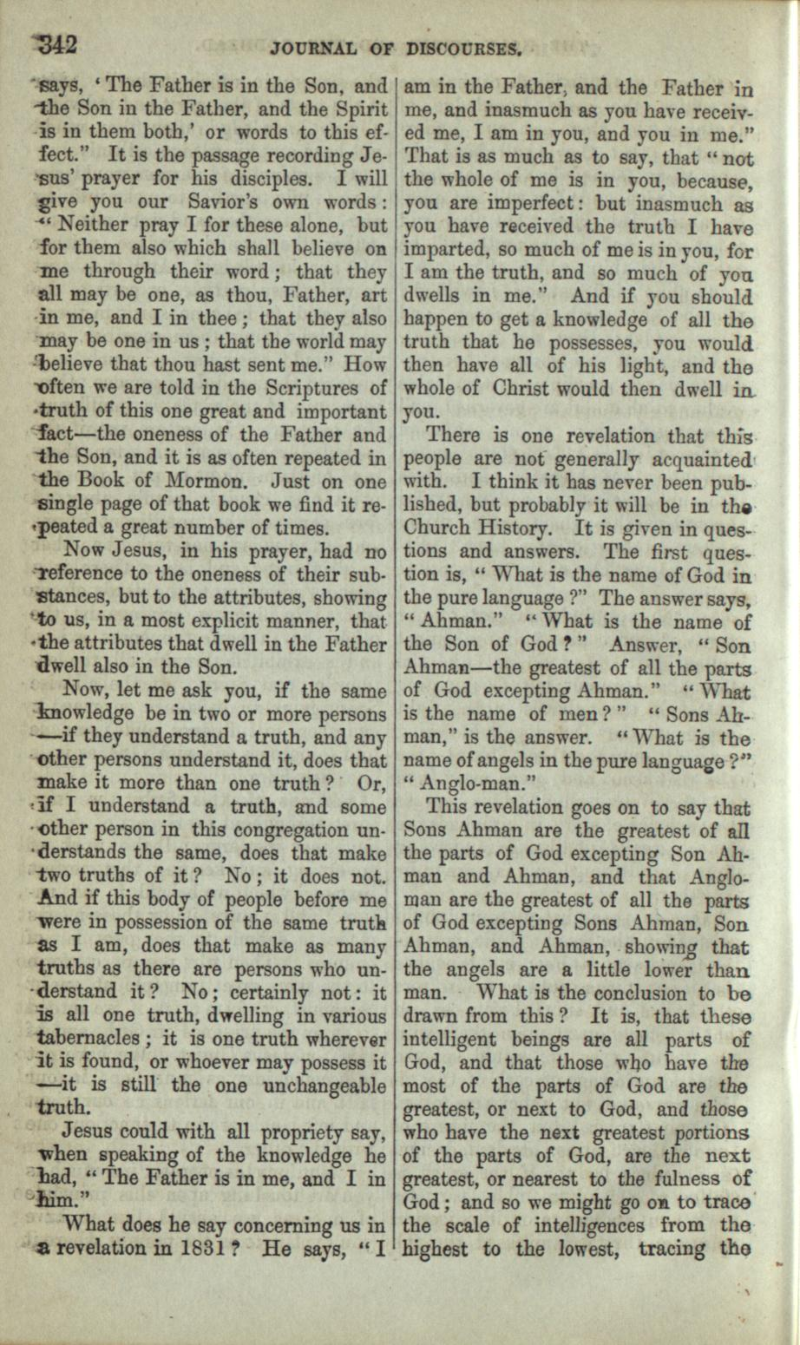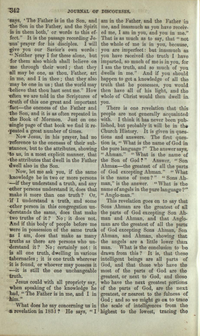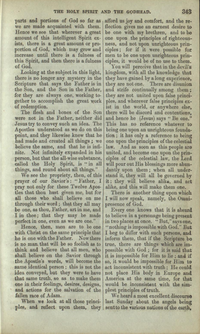Orson Pratt teaches that "Aman" is the name of God "in the pure langauge"; "Sons Ahman" are the greatest of all parts of God except the Father and Son Ahman (Jesus).
- Type
- Speech / Court Transcript
- Hearsay
- Scribed Verbatim
- Reference
Orson Pratt, "The Holy Spirit and the Godhead," Journal of Discourses, 26 vols. (Liverpool: F.D. Richards, 1855), 2:342-43
- Scribe/Publisher
- F. D. and S. W. Richards
- Audience
- Reading Public, Members of The Church of Jesus Christ of Latter-day Saints
- Transcription
Jesus could with all propriety say, when speaking of the knowledge he had, "The Father is in me, and I in him."
What does he say concerning us in a revelation in 1831? He says, "I am in the Father, and the Father in me, and inasmuch as you have received me, I am in you, and you in me." That is as much as to say, that "not the whole of me is in you, because, you are imperfect: but inasmuch as you have received the truth I have imparted, so much of me is in you, for I am the truth, and so much of you dwells in me." And if you should happen to get a knowledge of all the truth that he possesses, you would then have all of his light, and the whole of Christ would then dwell in you.
There is one revelation that this people are not generally acquainted with. I think it has never been published, but probably it will be in the Church History. It is given in questions and answers. The first question is, "What is the name of God in the pure language?" The answer says, "Ahman." "What is the name of the Son of God?" Answer, "Son Ahman—the greatest of all the parts of God excepting Ahman." "What is the name of men?" "Sons Ahman," is the answer. "What is the name of angels in the pure language?" "Anglo-man."
This revelation goes on to say that Sons Ahman are the greatest of all the parts of God excepting Son Ahman and Ahman, and that Anglo-man arc the greatest of all the parts of God excepting Sons Ahman, Son Ahman, and Ahman, showing that the angels are a little lower than man. What is the conclusion to be drawn from this? It is, that these intelligent beings are all parts of God, and that those who have the most of the parts of God are the greatest, or next to God, and those who have the next greatest portions of the parts of God, are the next greatest, or nearest to the fulness of God; and so we might go on to trace the scale of intelligences from the highest to the lowest, tracing the parts and portions of God so far as we are made acquainted with them. Hence we see that wherever a great amount of this intelligent Spirit exists, there is a great amount or proportion of God, which may grow and increase until there is a fulness of this Spirit, and then there is a fulness of God.
- Citations in Mormonr Qnas
The B. H. Roberts Foundation is not owned by, operated by, or affiliated with the Church of Jesus Christ of Latter-day Saints.



